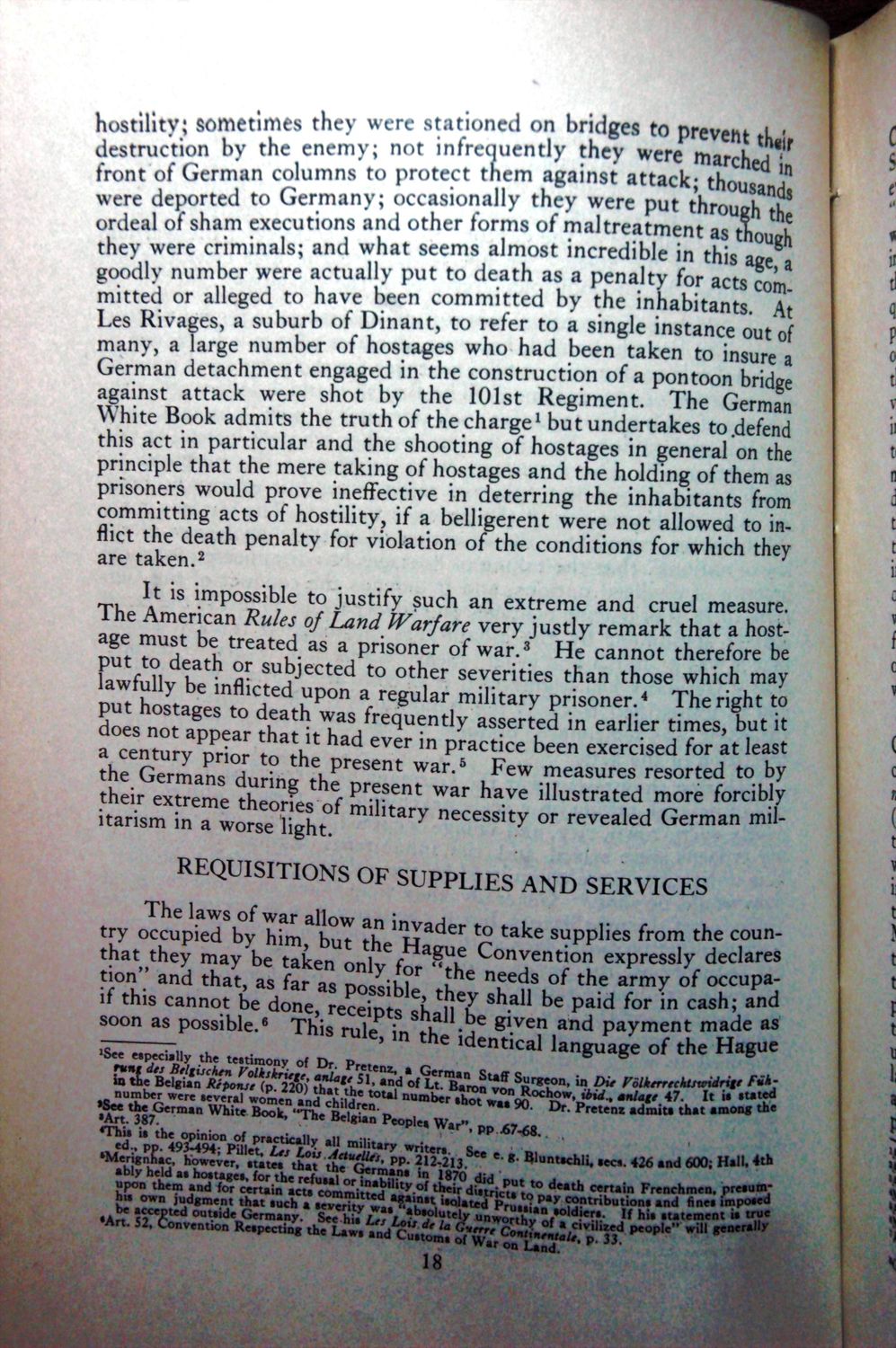Caption: War Publications - WWI Compilation 1923 - Article 14
This is a reduced-resolution page image for fast online browsing.

EXTRACTED TEXT FROM PAGE:
hostility; sometimes they were stationed on bridges to prevent tk«ir destruction by the enemy; not infrequently they were marched in front of German columns to protect them against attack; thousands were deported to Germany; occasionally they were put through the ordeal of sham executions and other forms of maltreatment as though they were criminals; and what seems almost incredible in this age, a goodly number were actually put to death as a penalty for acts committed or alleged to have been committed by the inhabitants. At Les Rivages, a suburb of Dinant, to refer to a single instance out of many, a Targe number of hostages who had been taken to insure a German detachment engaged in the construction of a pontoon bridge against attack were shot by the 101st Regiment. The German 1 White Book admits the truth of the charge but undertakes to .defend this act in particular and the shooting of hostages in general on the principle that the mere taking of hostages and the holding of them as prisoners would prove ineffective in deterring the inhabitants from committing acts of hostility, if a belligerent were not allowed to inflict the death penalty for violation of the conditions for which they 2 are taken. It is impossible to justify such an extreme and cruel measure. The American Rules of Land Warfare very3justly remark that a hostage must be treated as a prisoner of war. He cannot therefore be put to death or subjected to other severities than those which may 4 lawfully be inflicted upon a regular military prisoner. The right to put hostages to death was frequently asserted in earlier times, but it does not appear that it had ever in practice been exercised for at least 5 a century prior to the present war. Few measures resorted to by the Germans during the present war have illustrated more forcibly their extreme theories of military necessity or revealed German militarism in a worse light. REQUISITIONS OF SUPPLIES AND SERVICES ?f a l W ninvader totake trv J i ? n S k K huti° \ e H supplies from the counhltthev l tY \ e Tla k e n o n* r f o»r 8 » e Convention expressly declares Y b J £ * » anrl t-ho* ~~ r_A ?u r y -- - " ^ e needs of rk* »-~~ ~( occupa «"»«•tion 8 0f if th soon 'See e.ycblly the tenimony of Dr Pret language ™ ™* Hagu of the ™ *«**u*BC Ul n n m e were •eve^women .n?c hildrV° u br c , d n •Sea the German W W t t B o o k •5St S J. ^ - ^ M n White BooW •Art.% " > "Th *<^^^£° g' lF '* *" ' • " *°- **• Pretent admitt that amon d 9 d mnl 47 l t if ^S^&f^iS^^^P^^ e ' « —»». — ™ - 6 0 H . 4 • 0; . t U h P B 1 •An. 52. 6>nve„tio„ ^pectii * T O & % & £ S ^ F ^ C S ' S ! *° " ""' ° *" Ple ge er y 18
|